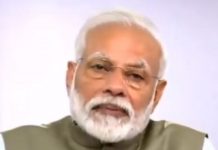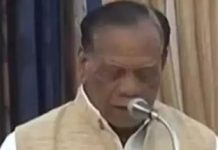
Photo: Shailendra Pandey
While I worked for the weekly Outlook magazine for five years, when Vinod Mehta was its editor, I took copious notes of the daily edit meetings. As I went through them today, I was surprised that most of the anecdotes and incidents were about his sometimes sarcastic, sometimes black, and sometimes sniping sense of humour. He was the funniest journalist I have worked with and, more important, he was a reporter’s editor, who felt happy when a politician or a businessperson would call him to complain about a negative piece written by his colleagues.
At one of the meetings, the books editor argued for extra pages for an interview with an Indian author, who had declared that he was gay. She got her way, and then another editor asked for an extra page for an interview with a diplomat. “What? Has he also come out of the closet,” asked VM, and everyone laughed. Once, when I had written against the then finance minister, P Chidambaram, the latter met VM at a party and complained about the article. The next day, VM narrated the incident to me, and asked me not to worry about it.
He was surely eccentric and maverick, but also brilliant in his sense of what would click with the readers. He pretended as if he didn’t hear everything that was said – he wore a hearing aid – when it suited him. But say something important, and he would respond in a manner that conveyed that he had heard every word, including the long sighs at the edit meetings. I didn’t agree with everything that he did or said, but then when I vehemently presented my case on an issue, he listened and even gave in if my points were solid, factual and logical.
A voracious reader of newspapers and magazines, both Indian and foreign, he would spend hours every day doing it. This meant that we too had to be prepared at the edit meetings. He met few people, including sources, but the daily readings gave him enough insights and sense of the political, economic and social events and happenings across the globe. So, some of the seniors made it a habit to borrow the newspapers and magazines after he was done with them. One of them would read all the newspapers once a week, before the weekly Friday meetings to discuss the next issue.
All of us had a few trying times with him. He would ask me to keep the phone down in mid-conversation because had something to say. He would peer over the reporters’ shoulders to ensure that they were working on the pieces that had to be filed in the next few hours. He would stop the desk people from going to the loo or eating their dinner because the issue had to go to the press. But we loved him for his passion and connect with Outlook. Single-handedly, he gave the magazine the seriousness, intellect and liberal bias that it had.
The Editor is dead. But he will always live in our hearts and minds.










